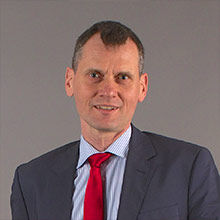The RFID market is set for further robust growth
RFID links the physical good with the correspondinginformation. In fact,the RFID principle has been used in a broad spectrum of military and civilian applicationsfor decades. However, it was not until the introduction of the electronicpassport and the use of RFID tags on some consumer goods in the retail sectorthat public interest in the technology surged.
Political and technological challenges will shape RFID'scommercial outlook.In the technology area, the issues seem to focus primarily on energy consumption,production costs, manufacturing speed and reading errors, while politically thefocus will be on frequency harmonisation, standardisation, and environmentaland data protection.
Not every RFID project driven by a technological vision willnecessarily become a commercial success. Before they start using RFID, companies must take acritical look at the cost and income aspects.
RFID promotes innovativeness in the economy as a whole.
Source: &sec=article&uinfo=<%=server.URLEncode(1813)%>" target="_blank">www.dbresearch.com
About the Author:
The authoris working as Senior Economist at Deutsche Bank Research since 2000. His mainresponsibilities are the economic analysis of structural changes caused byinnovative information and communications technologies. Before moving toDeutsche Bank, Dr. Heng worked in a Research Group of DeutscheForschungsgemeinschaft (German Research Foundation). He was awarded a doctorateby the University of Mannheim in 2000 for his thesis about the economic impactsof road traffic in Germany. Dr. Heng is the author of several studies andessays. Amongst others he is affiliated as referee to the InternationalTelecommunications Society (ITS), and as Young Leader to the Atlantic Bridge association.

20240830145908.gif)
20240924091633.png)

20240924111837.jpg)




Comments